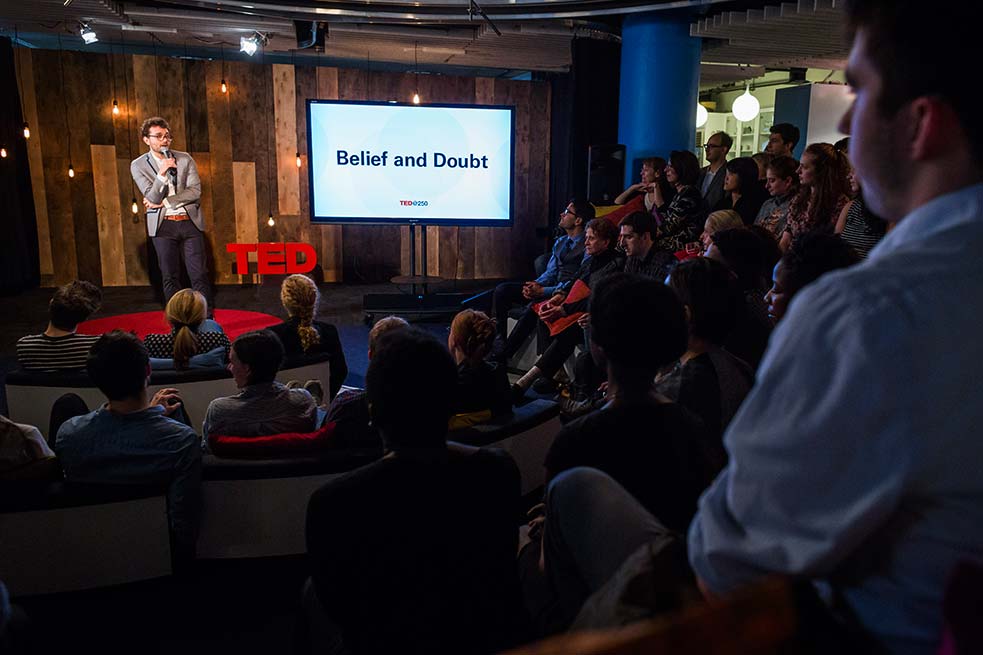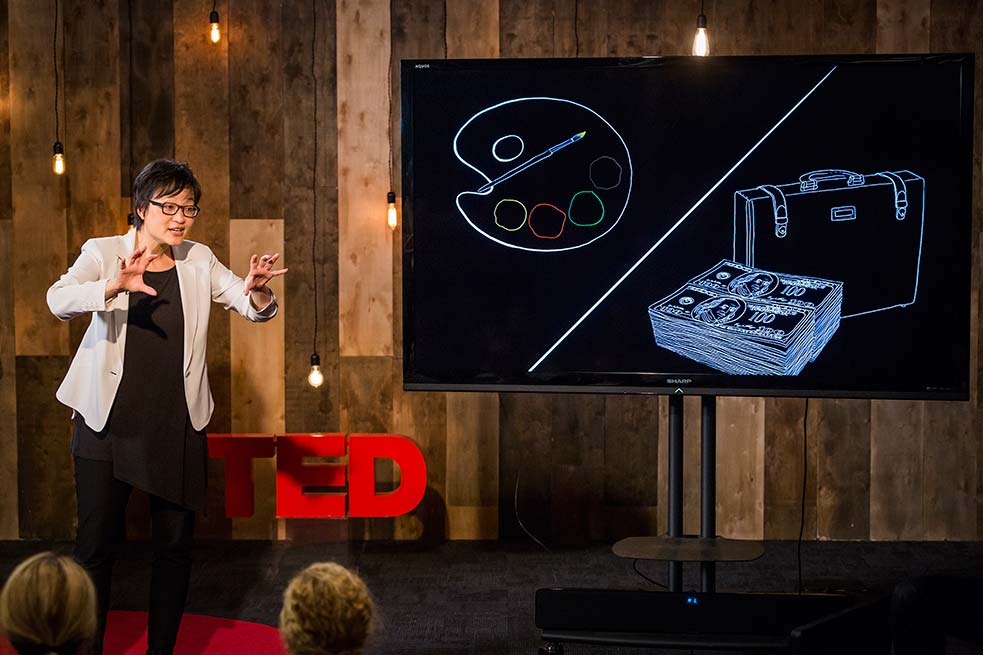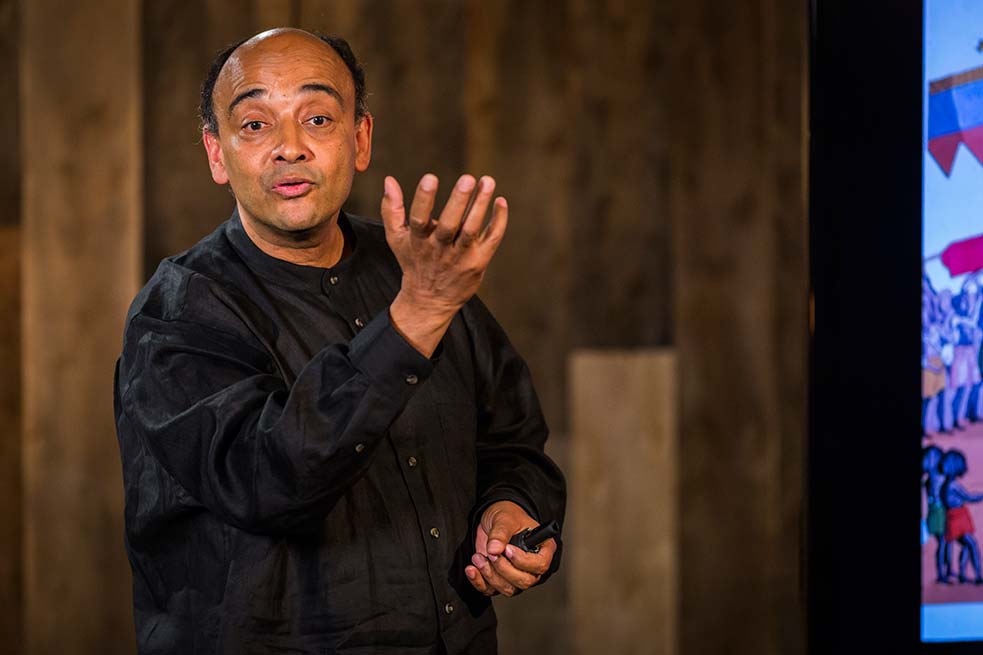
Why do we believe the things we believe? Last night’s event in the TED office explored this theme. Photo: Ryan Lash
Beliefs run deep, influencing not just whether we follow a religion but also the choices we make about every aspect of our lives. Belief is something we at TED think a lot about, and last night we held a session in our office dedicated to exploring what we believe and why we believe it. The evening was hosted by TEDx Talks manager David Webber and co-curated with TEDx staffer Simon Marcus.
The night began with Ruth Chang, a philosophy professor at Rutgers University, talking about what makes a choice easy or hard. In an easy choice, one option is clearly more desirable; on the other hand, “Hard choices are hard because there’s no best option,” she said. In a hard choice—be it about a job or where to live or whom to marry—the alternatives are on par, each representing a different kind of value. Thus, Chang sees every hard choice as an opportunity for each of us to author our own lives. “A world of easy choices would enslave us to the reasons given to us,” she says. “It’s in space of hard choices that we get to exercise our power to make reasons for ourselves.”
Next, Michael P. Lynch, a philosopher from the University of Connecticut, asked the question: If you could put a drug in the water to make everyone share your political views, would you do it? Most people—at least those who value democracy—wouldn’t consider this. We want to convince people without coercion. But this is tricky in the US cultural climate right now, says Lynch, because we don’t just disagree on how to reason about policy, we actually disagree on what reason is. What can we do? We have to rely on the types of reason that we all, as human beings, can identify as sound. Individually, we’re not great at this—but together, it becomes possible. Lynch ends with a bold call to invest in public institutions that support public discourse.
Is science a belief? Naomi Oreskes, a science historian at Harvard, spoke next, pointing out that to the layperson—and even to any scientist out of their field—scientific claims are a leap of faith. Scientific method does not guarantee truth, says Oreskes, highlighting four reasons it can fail: because false hypotheses can make true predictions, because scientists make assumptions without realizing it, because science often starts with observation rather than hypothesis, and because scientists are inherently creative. But like Lynch, Oreskes sees the power of group wisdom. Scientists collect evidence and hold it up to the scrutiny of their peers. What’s accepted as true isn’t about one study—it’s about the collective knowledge of every scientist who has worked on a problem. And with that underpinning, it is far more reliable.
Imani Uzuri is a vocalist, composer, and cultural worker in New York who explores African American spirituals. After leading the audience in a group sing-along—turns out most of us know several of these songs—she says, “African American spirituals have a rich, multilayered, encoded history … Today, we continue the legacy of revolution, transcendence and serenity.” And with that, she played one of her own gorgeous songs.
Finally Anthony Appiah, a professor at New York University, came to blow our minds with a surprising idea: that debates about the merits of religion are “preposterous because there is no such thing called religion.” The dictionary definition of the word points to belief in gods or spiritual things, but many Jews and Hindus, for example, don’t believe that way. Even the Dalai Lama is an atheist, Appiah points out. He traces our concept of religion back to European explorers who encountered new cultures and noticed them practicing beliefs not like Christianity, but akin to it. Says Appiah, “The way our concept of religion works is that we have a list of paradigm religions, and if something new comes along, we ask, ‘Is it like one of these?’” And that isn’t very satisfying concept, is it?
“Faith and Doubt” was part of TED@250, a series of salons held at our New York headquarters at 250 Hudson Street. Since our main conferences are only twice a year, TED@250 is an opportunity for talks that rethink headlines and respond to conversations happening in real time. It’s also a place for speakers with the kind of personal stories that simply work better on the small scale. Stay tuned: Some of these talks may be coming to TED.com.

Ruth Chang gives a talk on the dynamics of hard choices. Photo: Ryan Lash

Anthony Appiah on why there is no “thing” called religion. Photo: Ryan Lash
Comments (11)